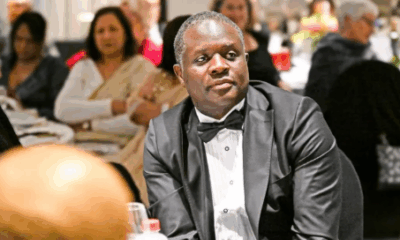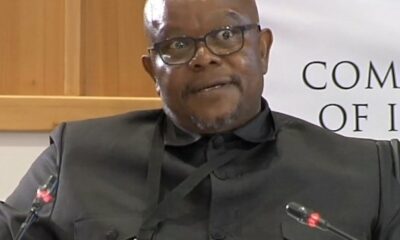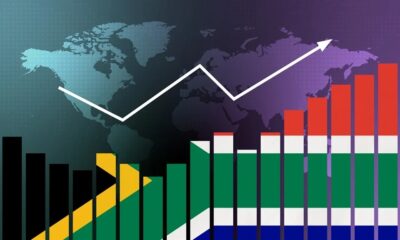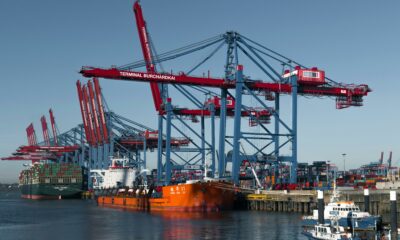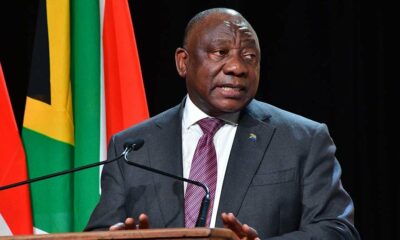Business
Ramaphosa Doubles Down on BBBEE: Transformation Is Non-Negotiable, He Says
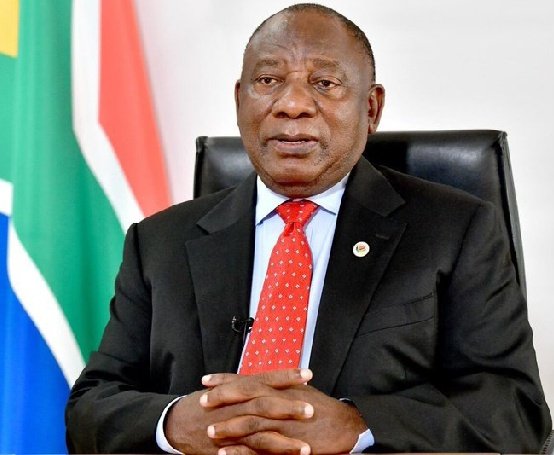
President Cyril Ramaphosa has made it crystal clear: South Africa’s Broad-Based Black Economic Empowerment (BBBEE) policies are not going anywhere. Amid mounting criticism and calls for reform from opposition parties like the Democratic Alliance (DA), the president has reiterated that economic transformation rooted in inclusivity is not just policy, it’s a constitutional obligation.
A Policy Born From the Freedom Charter
Addressing the nation in his weekly newsletter and speaking at the Black Business Council summit, Ramaphosa firmly stood by the transformation agenda initiated post-apartheid. Framing BBBEE as a natural extension of the Constitution and the Freedom Charter, he stressed that dismantling these efforts now would be a betrayal of South Africa’s democratic promises.
“Our Constitution reflects the promise we made to one another,” Ramaphosa wrote. “For this reason, we reaffirm that BBBEE is not just a policy choice but a constitutional imperative.”
Why the Push Now? A ‘Polycrisis’ Demands Inclusion
With the global economy navigating what experts are calling a “polycrisis” a perfect storm of conflict, environmental degradation, and institutional mistrust Ramaphosa believes that now is the time for even more decisive transformation, not less.
Since 1994, South Africa has built a detailed legal framework to bring black South Africans into the economic mainstream, including the BBBEE Act and Employment Equity Act. And while the journey has been tough, Ramaphosa insists it’s yielding results.
From Policy to Progress: Signs of Change
Ramaphosa pointed to clear progress: rising black ownership in enterprises, greater female representation in business, and real income growth among historically disadvantaged groups. According to Stats SA, black African households saw a 46% increase in real income from 2006 to 2023. But glaring inequality persists — white households still earn nearly five times more than black ones.
“This is the gulf we must close,” Ramaphosa said. “Transformation is not a favour. It is a necessity.”
Lamola’s Rallying Cry to Black Entrepreneurs
Minister of International Relations Ronald Lamola echoed these sentiments at the summit, urging black entrepreneurs to take centre stage in revitalising South Africa’s economy. He emphasized that inclusive growth must involve black-owned businesses participating meaningfully, not only at home but globally.
“Inclusive trade and investment can help bridge both domestic and global divides,” said Lamola. “We need black entrepreneurs in the mainstream economy, playing their part on the world stage.”
Lamola also highlighted the importance of collaboration and exchange programmes to empower small businesses, calling them “key to economic resilience.”
DA Pushes Back, Calls for Rethink
But not everyone is convinced. The Democratic Alliance has continued to argue that BBBEE benefits only a select elite rather than the majority. Ryan Smith, the party’s deputy spokesperson for International Relations, argued for a “non-racial” approach based on poverty rather than race.
“BBBEE has repeatedly failed to deliver the promised economic justice,” said Smith. “It entrenches a system of re-enrichment for the politically connected elite. Our Economic Justice Policy would ensure support is given to those who need it most, regardless of race.”
South Africans Weigh In
Public opinion on social media appears deeply divided. On platforms like X (formerly Twitter), many users defended BBBEE, citing generational injustice and the ongoing structural barriers black South Africans face. Others echoed the DA’s concerns, questioning the policy’s effectiveness and fairness.
One user wrote, “We can’t pretend apartheid’s legacy is gone. You don’t fix systemic inequality by pretending we’re all starting from the same line.” Another responded, “BBBEE is now just a crony capitalist game. It’s not helping ordinary people, just the connected few.”
A Balancing Act Between Redress and Growth
What’s clear is that the future of South Africa’s economy won’t be built on neutrality. The debate over BBBEE is a reflection of deeper tensions around race, opportunity, and justice in a still-unequal society. While Ramaphosa and Lamola are calling for a doubling down on transformation, others believe the time has come for reform — not retreat.
As the country inches toward its next political chapter, the question isn’t whether transformation is needed, but how it should happen and for whom.
{Source: IOL}
Follow Joburg ETC on Facebook, Twitter , TikTok and Instagram
For more News in Johannesburg, visit joburgetc.com



